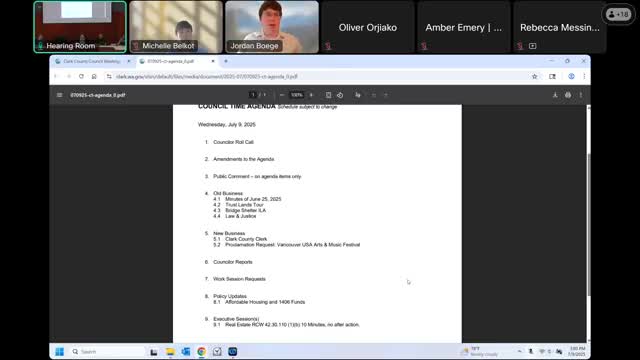Article not found
This article is no longer available. But don't worry—we've gathered other articles that discuss the same topic.

Public urges county forestry oversight as staff coordinates trust-lands tour with DNR
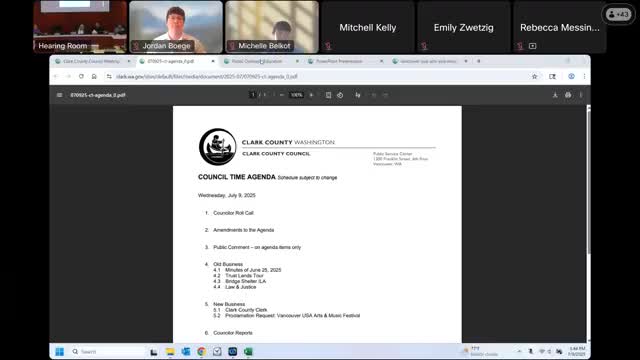
County seeks law-and-justice master plan, market analysis; jail rebuild estimated at $473 million
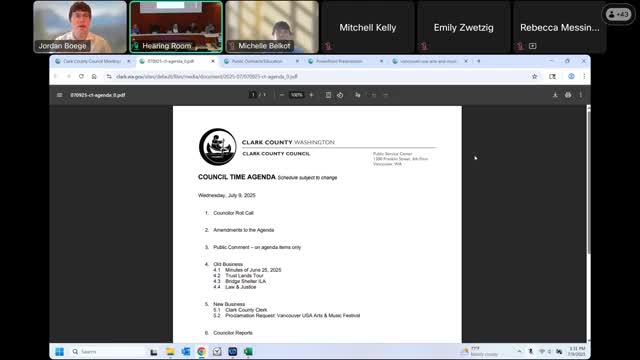
Clark County, Vancouver interlocal would fund bridge shelter; county to provide $2.1M in capital support
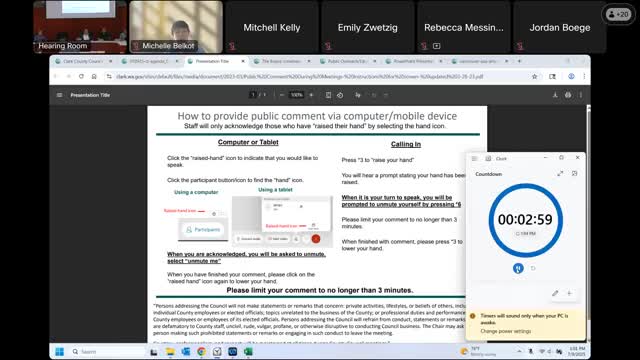
Clark County Council pauses idea to make clerk an appointed post; refers review to Charter Review process
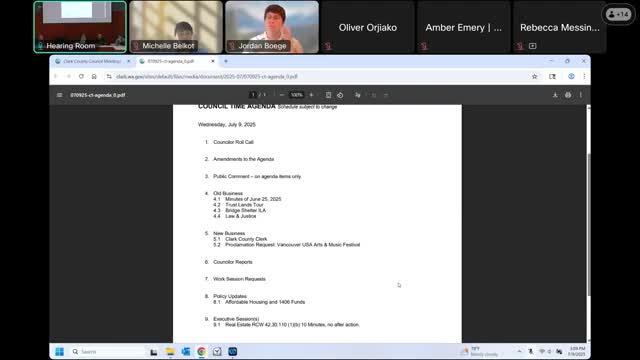
Council endorses proclamation for Vancouver USA Arts & Music Festival; reading to be scheduled next week
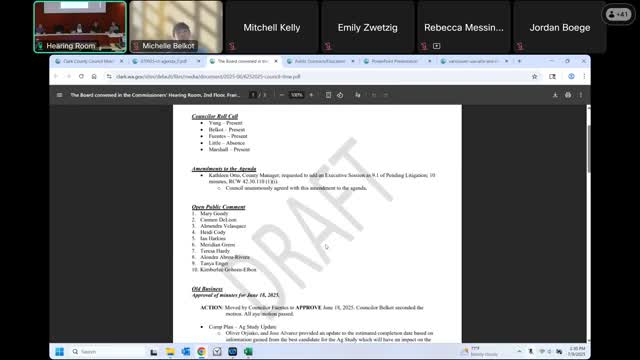
Votes at a glance: Council approves June 25 minutes; other items scheduled for follow-up
